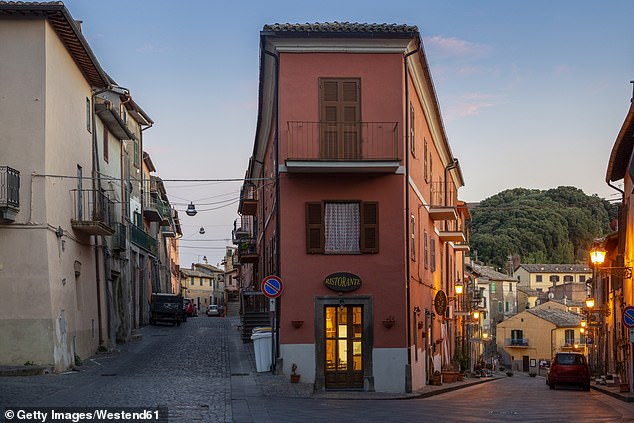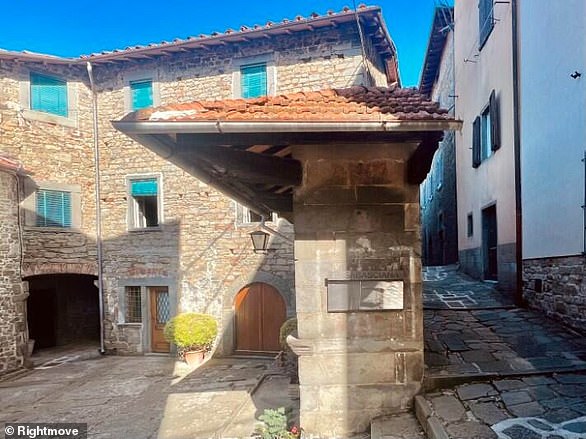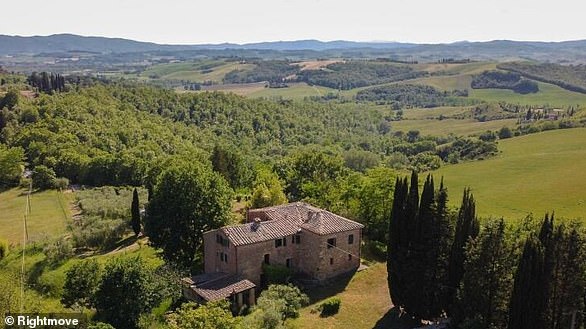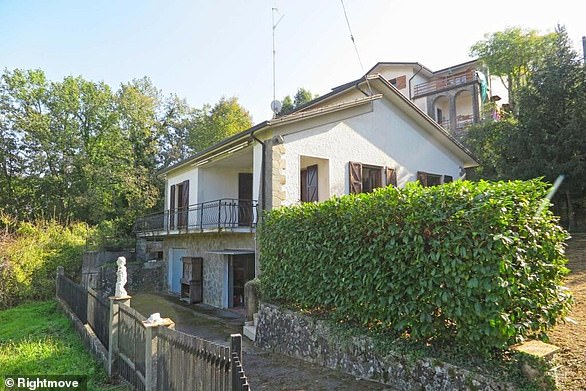Table of Contents
If you want to follow in the footsteps of Amanda Holden and Alan Carr by buying a property in Italy, there are a few important things you need to know in advance.
The celebrity couple bought an older property in Tuscany and renovated it as part of the second series of their BBC One TV show, Amanda and Alan’s Italian job.
Whether you want to embark on a complete renovation or immediately sit on your own completed terrace in the Tuscan sun, foreign property expert Simon Conn explains what you need to know before you buy.

Tuscany: Properties in the central Italian region are popular with foreign buyers
Buying a property in Italy is a similar process to buying in Britain. However, Mr Conn says there are some specific pitfalls that buyers should be aware of
This includes not participating in a practice known as ‘under-declaring’ (scroll down for more details), as this is a criminal offense in Italy.
You should also be aware of the different mortgage landscape if you need financing to complete your purchase.
Mr Conn explains that the minimum deposit required for a home loan in Italy is currently 40 percent.


The current series of Amanda and Alan’s Italian Job is the second they have created together
This is significantly higher than in Britain, which offers various offers for people with a much lower deposit of 10 or even 5 percent.
This 40 percent deposit in Italy would require a minimum purchase amount of €165,000 and a minimum loan of €100,000 – the equivalent of £141,000 and £85,000 respectively.
Mr Conn said: ‘You might imagine yourself sitting in the Italian summer sun with a glass of wine in your hand on your own balcony, but to get there you have to go through the buying process – and there are a few things to know. remember to avoid pitfalls.”
Top tips for buying in Italy…
1. Independent lawyer
Mr Conn’s best tip for buying in Italy is to hire a lawyer who doesn’t work for the real estate agent or developer.
He says it’s important to make sure you use a lawyer who is independent and has no conflict of interest with the agent or developer you’re buying from.
2. Notary
You also need a so-called notary, who is separate from a lawyer.
The role of the notary consists solely of identifying the parties to the transaction, drawing up the final contract – a so-called rogito – and collecting the stamp duty on behalf of the Italian tax authorities.
3. Legal advice
Mr Conn warns that you should never enter into a legally binding agreement such as a purchase proposal, a so-called ‘proposta di acquisto’, without obtaining independent legal advice.
He explains that this is crucial when purchasing a property off-plan and during inspection trips.
4. Warranties
Buyers should also always insist on obtaining a guarantee (bond) when purchasing from a developer, as the guarantee is mandatory in Italy.
However, some developers may try to pressure you to agree to waive this requirement.
5. Additional costs
As with buying in Great Britain, it is important to take additional costs into account on top of the purchase price.
For example, there are legal fees and stamp duty to consider in your final budget.
This will vary depending on whether you are a private individual or a company and whether the land is agricultural, so check with your Italian lawyer, surveyor and notary.
6. Power of attorney
When the sale is completed, that is the case mandatory that both the buyer and the seller are present. However, Mr Conn says it is possible for the buyer to avoid the cost and potential inconvenience of flying to Italy.
He suggests that this can be done by gGive power of attorney to your lawyer or someone you can trust, but never to a real estate agent, as they will be in a conflict of interest situation.
7. Never underdeclare
One of the most serious pitfalls to avoid when buying property in Italy is under-declaring the purchase price, as this is a criminal offense in Italy.
This is where buyers try to avoid paying the full sale price to avoid stepping into a higher stamp duty threshold and therefore paying higher moving costs.
Under-declaration is done by either paying a portion in cash for a property, or by “hiding” part of the purchase price by claiming the property is paid for inventory.
8. No fees
It is important to confirm with your attorney that there are no mortgages, liens or encumbrances on the property.
9. Original contract
Always ask for a copy of the original contract well in advance. This shows who is the legal owner of the property you want to purchase.




